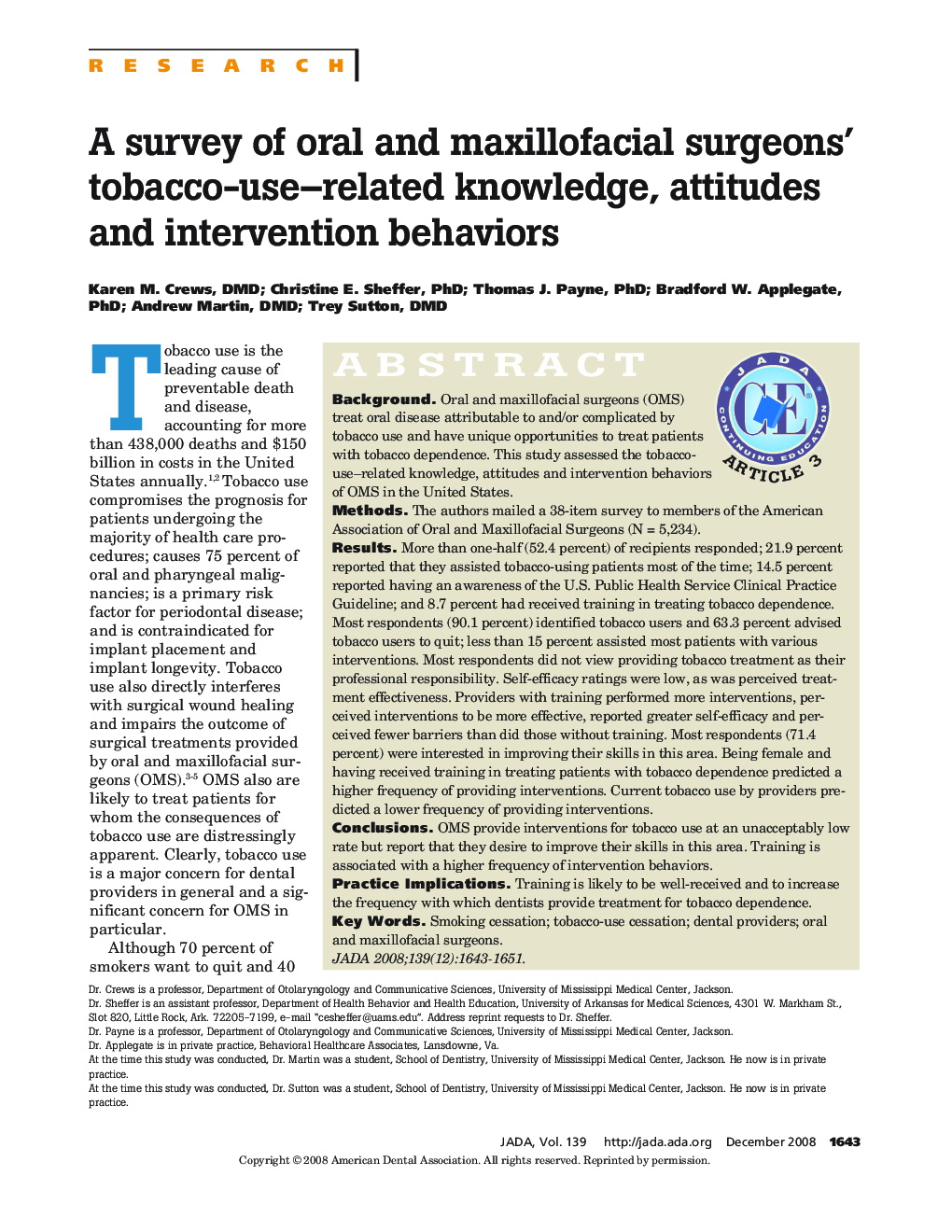| کد مقاله | کد نشریه | سال انتشار | مقاله انگلیسی | نسخه تمام متن |
|---|---|---|---|---|
| 3139079 | 1585064 | 2008 | 9 صفحه PDF | دانلود رایگان |

ABSTRACT BackgroundOral and maxillofacial surgeons (OMS) treat oral disease attributable to and/or complicated by tobacco use and have unique opportunities to treat patients with tobacco dependence. This study assessed the tobacco-use–related knowledge, attitudes and intervention behaviors of OMS in the United States.MethodsThe authors mailed a 38-item survey to members of the American Association of Oral and Maxillofacial Surgeons (N = 5,234).ResultsMore than one-half (52.4 percent) of recipients responded; 21.9 percent reported that they assisted tobacco-using patients most of the time; 14.5 percent reported having an awareness of the U.S. Public Health Service Clinical Practice Guideline; and 8.7 percent had received training in treating tobacco dependence. Most respondents (90.1 percent) identified tobacco users and 63.3 percent advised tobacco users to quit; less than 15 percent assisted most patients with various interventions. Most respondents did not view providing tobacco treatment as their professional responsibility. Self-efficacy ratings were low, as was perceived treatment effectiveness. Providers with training performed more interventions, perceived interventions to be more effective, reported greater self-efficacy and perceived fewer barriers than did those without training. Most respondents (71.4 percent) were interested in improving their skills in this area. Being female and having received training in treating patients with tobacco dependence predicted a higher frequency of providing interventions. Current tobacco use by providers predicted a lower frequency of providing interventions.ConclusionsOMS provide interventions for tobacco use at an unacceptably low rate but report that they desire to improve their skills in this area. Training is associated with a higher frequency of intervention behaviors.Practice ImplicationsTraining is likely to be well-received and to increase the frequency with which dentists provide treatment for tobacco dependence.
Journal: The Journal of the American Dental Association - Volume 139, Issue 12, December 2008, Pages 1643–1651